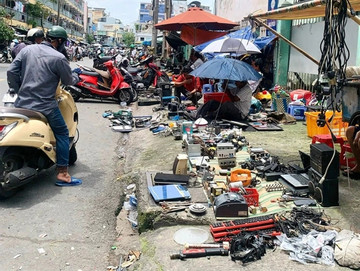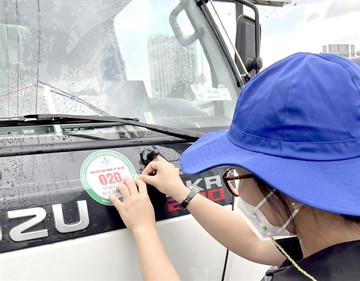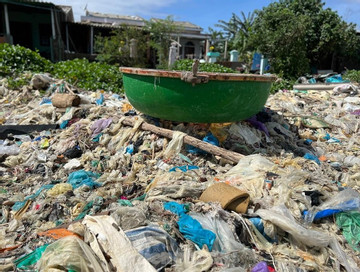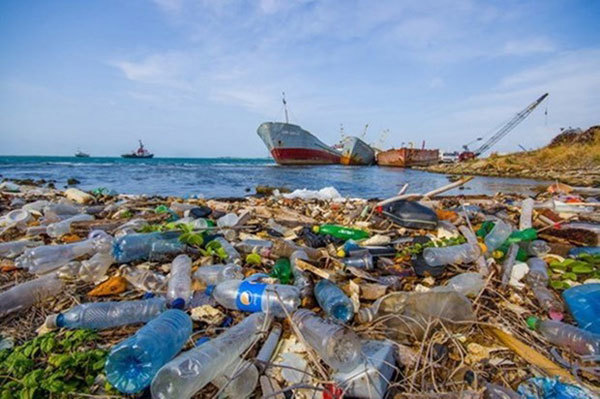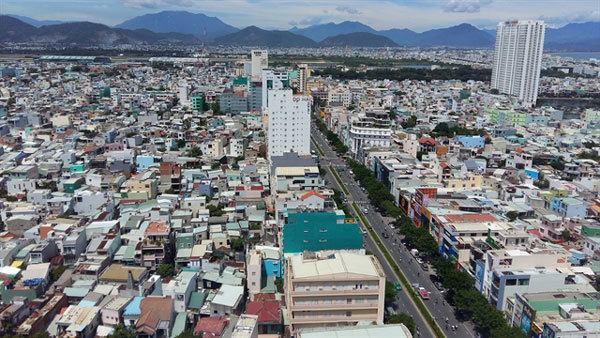- © Copyright of Vietnamnet Global.
- Tel: 024 3772 7988 Fax: (024) 37722734
- Email: [email protected]
waste management
Update news waste management
Waste woes: Vietnam seeks sustainable solutions
On average, the country generates around 68,000 tonnes of waste daily, of which 38,000 comes from urban areas and 30,000 from rural regions.
Nha Trang man improves sand screening vehicle to keep beach clean
Every night, Mr. Pham Duc Thanh drives a sand screening vehicle to rake and collect a large amount of bottles, can caps, plastic bags, cigarette butts, and more lying under the sand to make Nha Trang beach (Khanh Hoa province) cleaner.
Hoi An ancient town promotes ‘zero waste’ drive
The ancient town of Hoi An has been trialling the first ever daily combined waste collection and treatment fee for households - a crucial step on the way to it being recognised as an eco-city.
E-waste puts pressure on waste management
Research findings from the Institute of Environmental Science and Technology reveal that VN currently generates approximately 100,000 tonnes of electronic waste annually, mainly consisting of household appliances, electronics and office equipment.
HCM City promotes digital transformation in waste management
HCM City is making efforts to promote digital transformation in the collection, treatment and management of the huge volume of domestic solid waste discharged daily.
Quang Ngai beach severely polluted
A 300-metre beach in the central province of Quang Ngai is being covered with rubbish after recent storms.
Japan supports Vietnam in building legal regulations on waste management
Cooperation in waste management and the building of emission-free circular economy was highlighted at the third meeting of the Joint Committee of Vietnam’s Ministry of Natural Resources and Environment (MoNRE) and Japan’s Ministry of the Environment.
UNDP and Da Nang work towards smart, green and inclusive city
 United Nations Development Programme (UNDP) resident representative in Vietnam, Caitlin Wiesen applauded Da Nang for its commitment to its growth as a smart, innovative and thriving city.
United Nations Development Programme (UNDP) resident representative in Vietnam, Caitlin Wiesen applauded Da Nang for its commitment to its growth as a smart, innovative and thriving city.
Alliance to End Plastic Waste calls for concerted global effort
 A co-ordinated and sustained global effort “is needed to reinforce the circular economy through action-based projects”, an international forum heard in Bangkok.
A co-ordinated and sustained global effort “is needed to reinforce the circular economy through action-based projects”, an international forum heard in Bangkok.
This car wash might be a lot of eyewash
It is obvious that air quality in Ha Noi has deteriorated in recent years, and equally evident that the situation has not improved despite municipal authorities holding any number of meetings on this topic.



